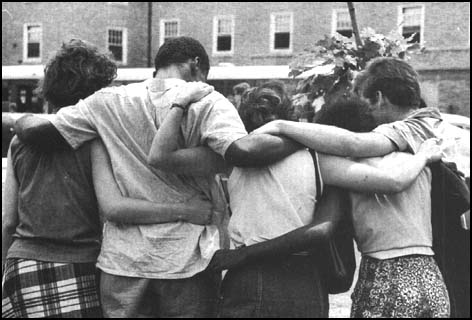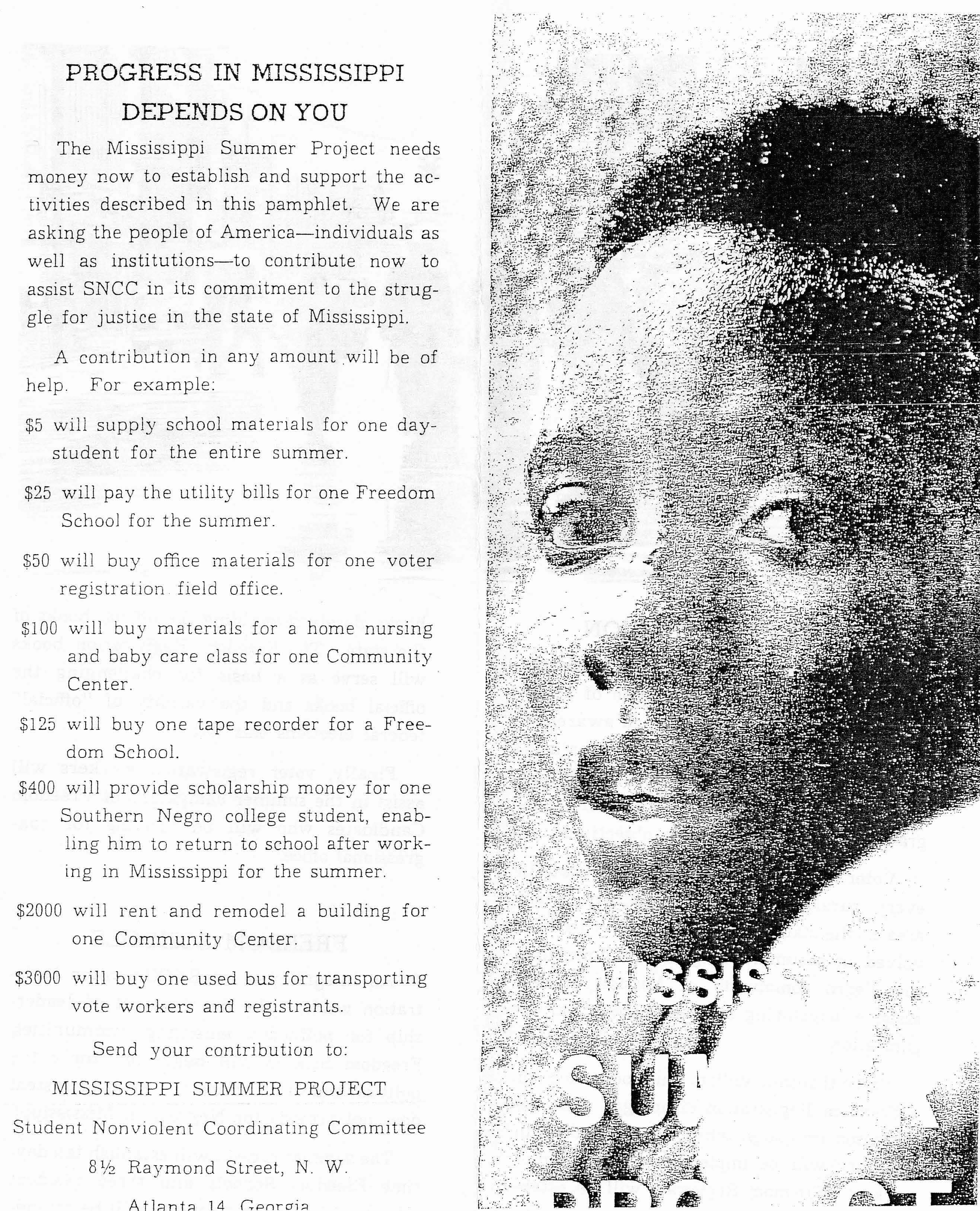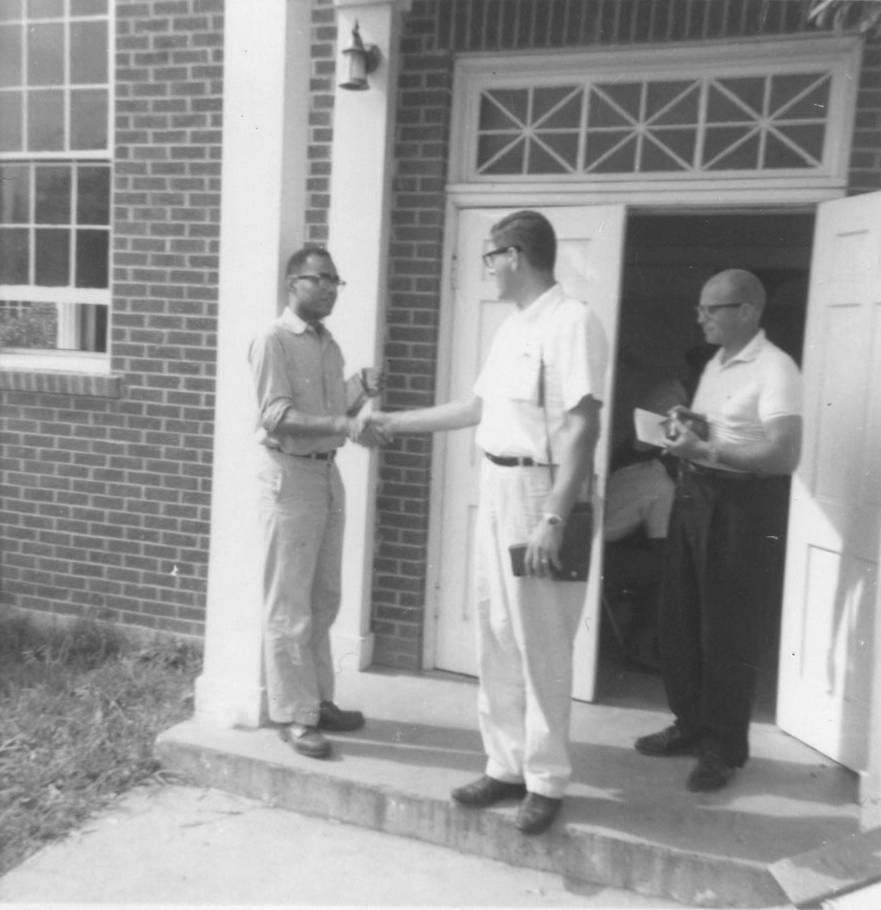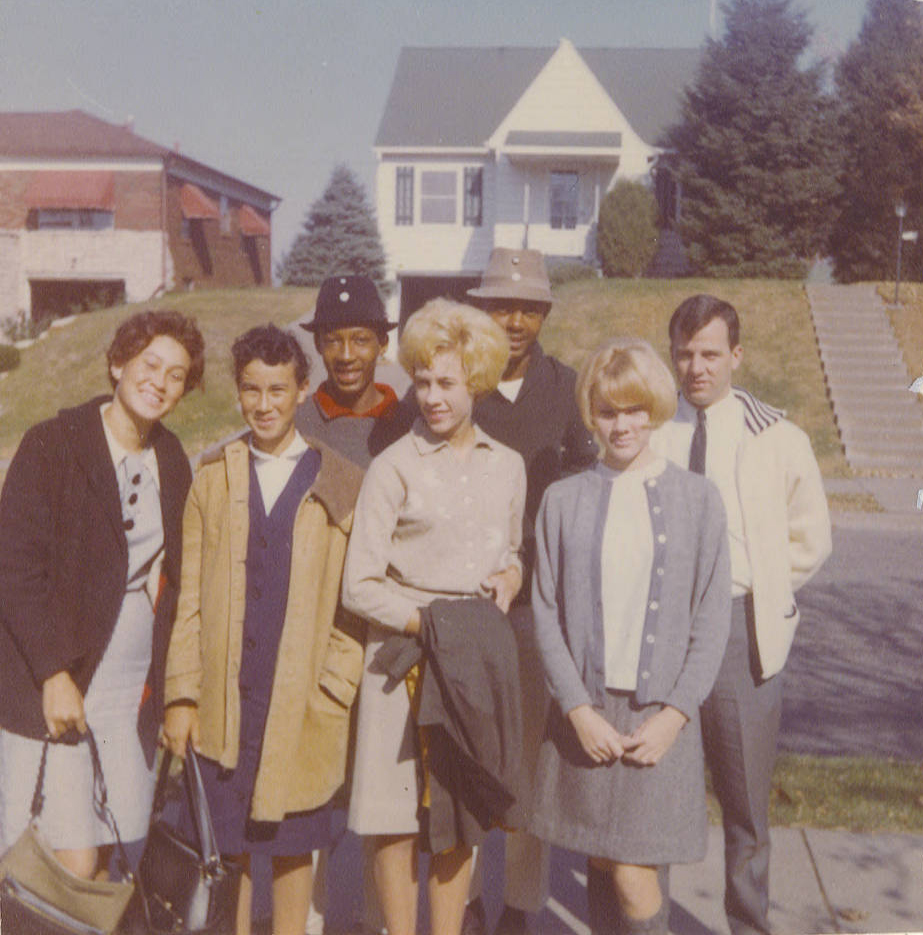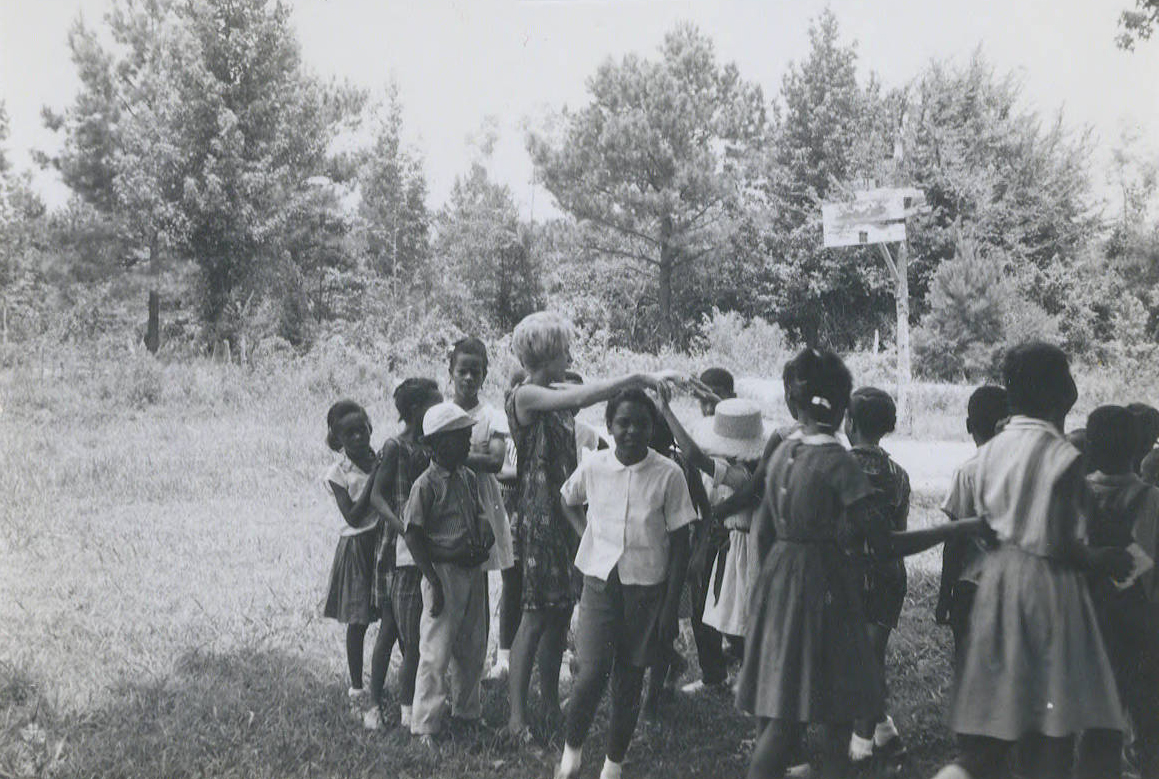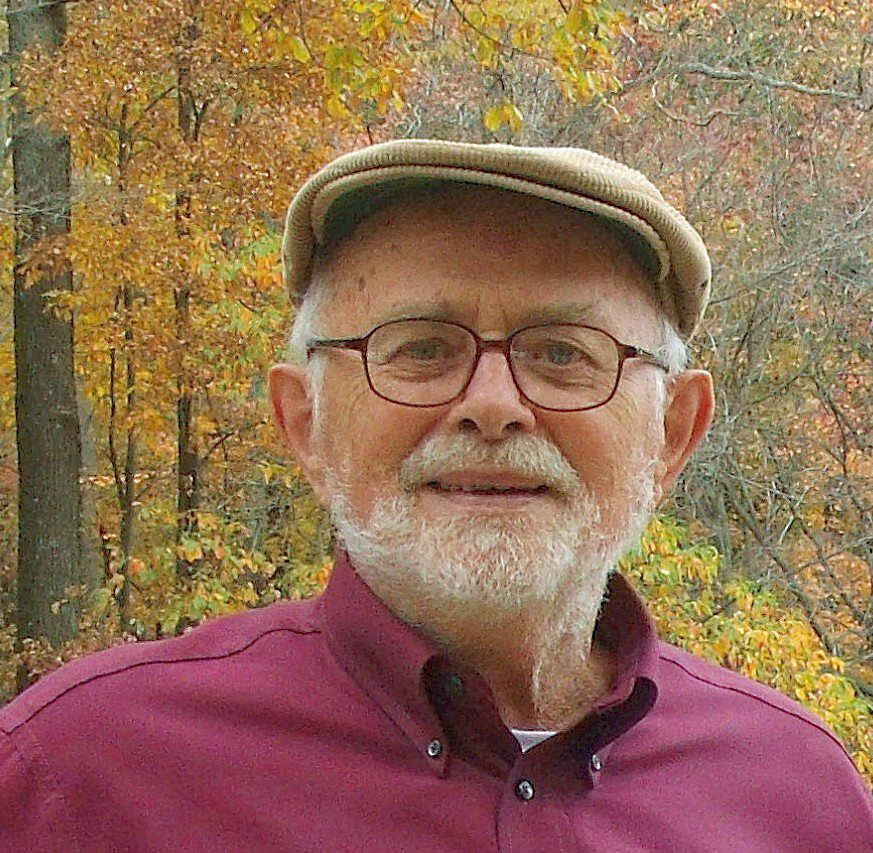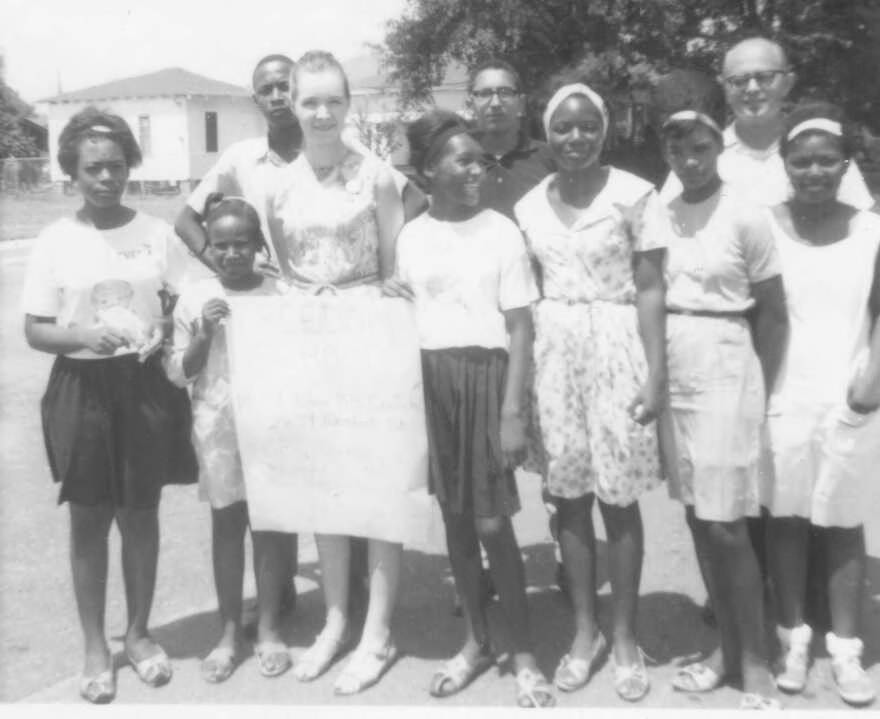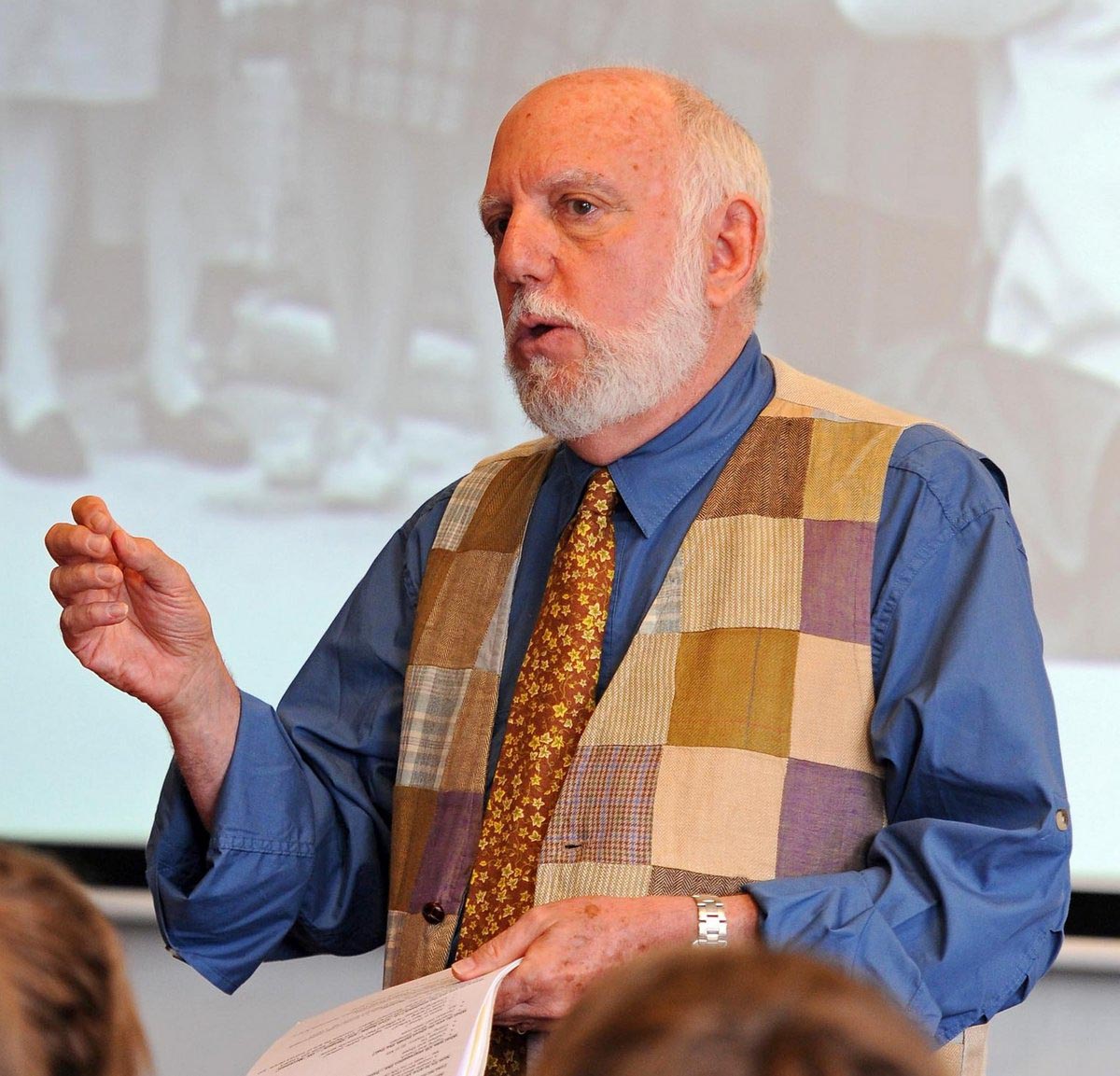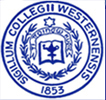Stories of Freedom Summer
From the Western College Memorial Archives
August 25 - December 12, 2014
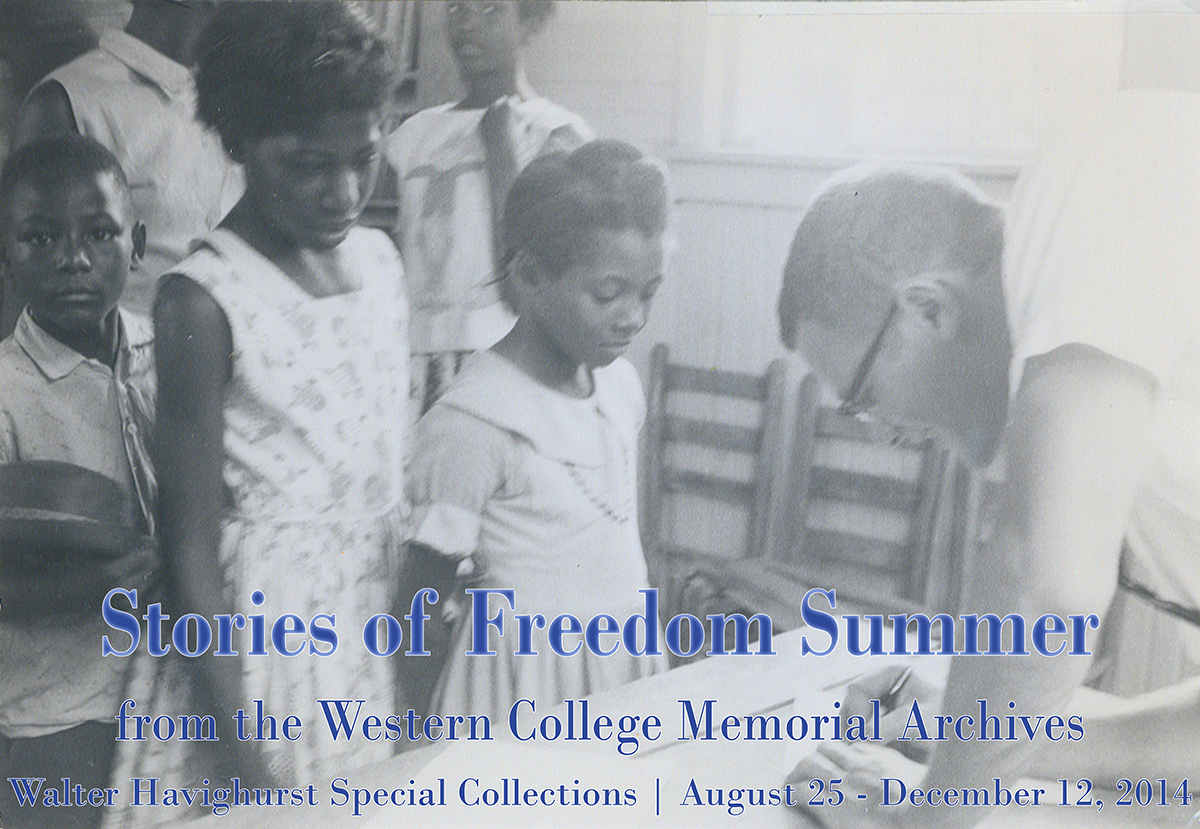
When the administration of the Western College for Women, now a part of Miami University, opened its campus to civil rights activists in 1964, an estimated 700 young and idealistic college students from across the north arrived in Oxford, Ohio for voter registration training.
Sponsored by a coalition including the Congress of Racial Equality (CORE), the National Association for the Advancement of Colored People (NAACP), Student Nonviolent Coordinating Committee (SNCC), and the Southern Christian Leadership Conference (SCLC), and the National Council of Churches, this event is considered by scholars to be one of the pivotal events in civil rights history; one that would eventually reshape the electoral landscape of the United States.
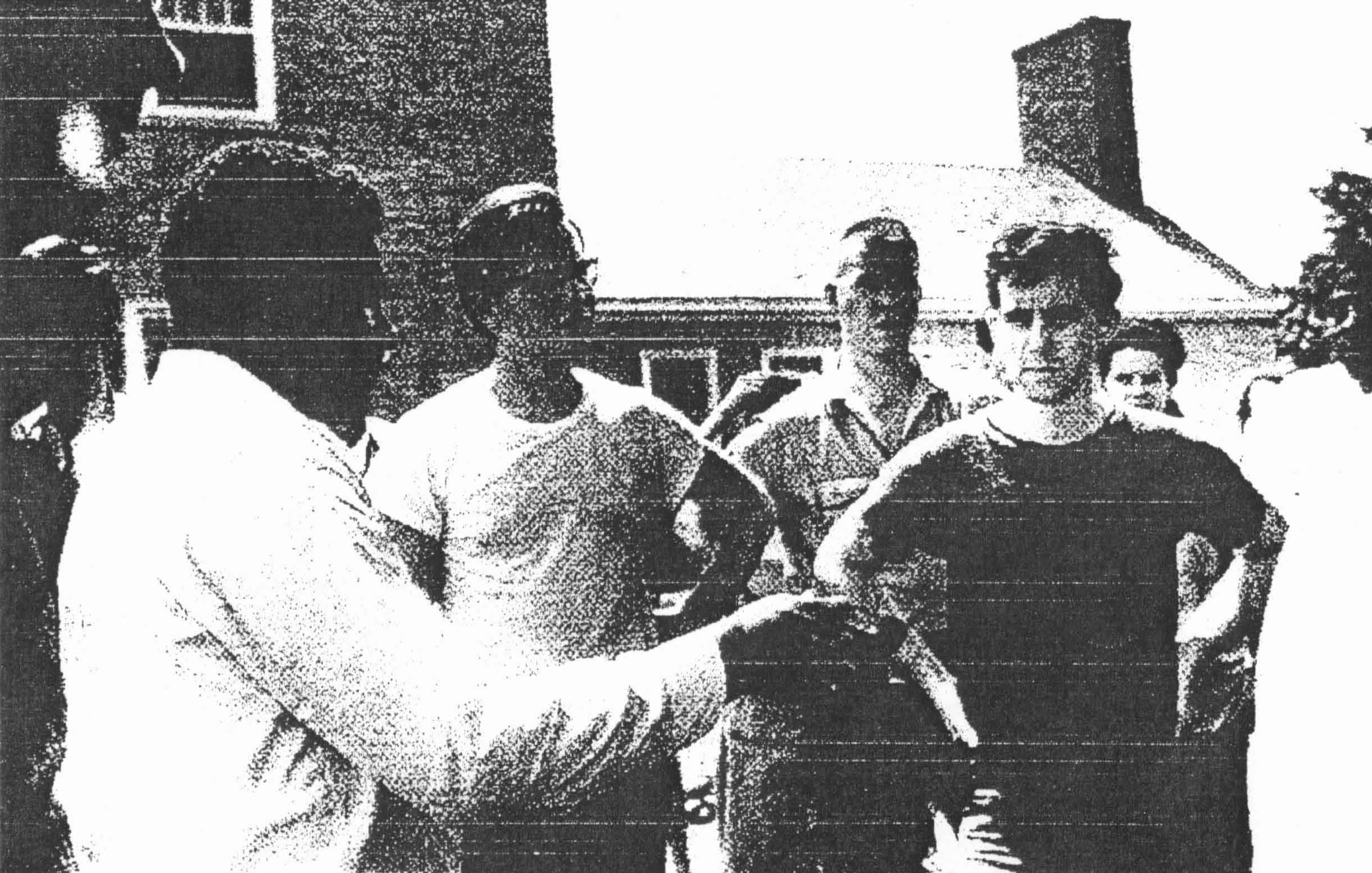
In Fall 2014, Special Collections presented Stories of Freedom Summer: from the Western College Memorial Archives. The exhibit featured many of the items now available on this webpage. On October 10th, the 2nd Annual Special Collections Lecture featured a panel of the three volunteers who were featured in the exhibit: Carole Gross Colca, Roland Duerksen, and Mark Levy. All three volunteered in Mississippi that summer and this exhibit serves as a narrative of their dedication to civil rights and social justice. In addition to the photographs, letters, and memorabilia, the exhibit includes audiovisual and interactive media. While in the exhibit room, visitors will be able to hear the voices of Freedom Summer's volunteers and supporters. Taken from the Freedom Summer Digital Archive, samples of participants' oral histories play in the background of the exhibit and a screen displays information about each speaker. On one wall of the room stands an interactive map of Mississippi, with significant sites of Freedom Summer highlighted. When touched, each site displays an image, a quote, or an article about events in that city. Like the oral histories, all the items in the interactive map can be found in the Freedom Summer Digital Archive.
